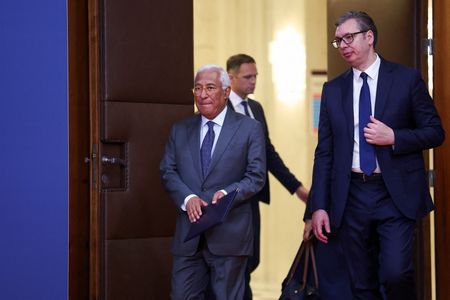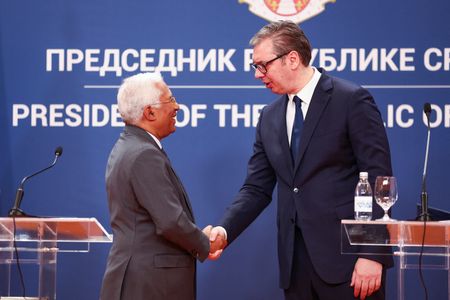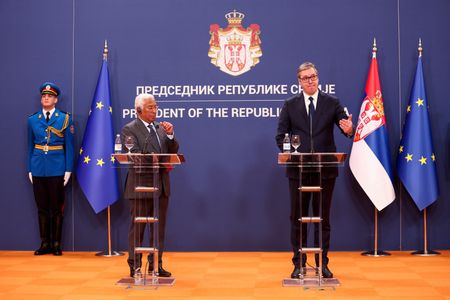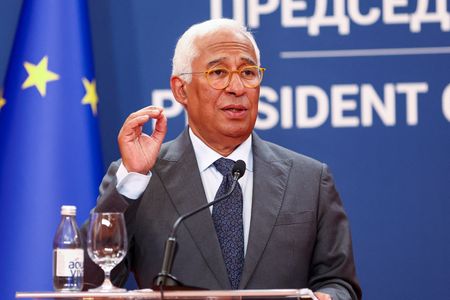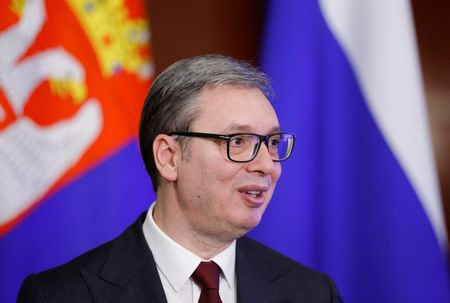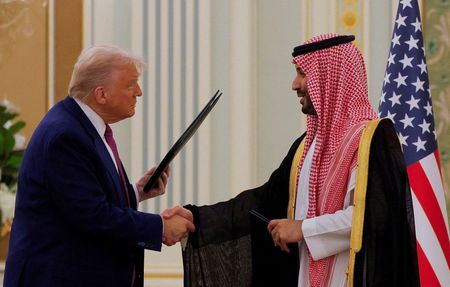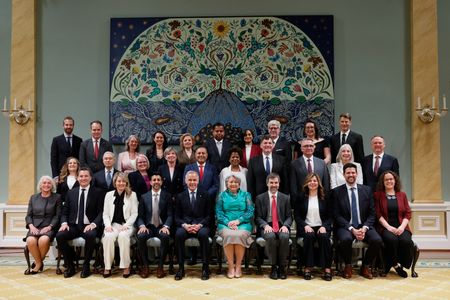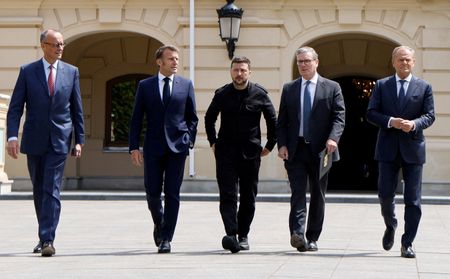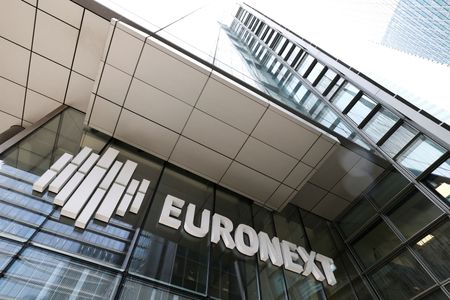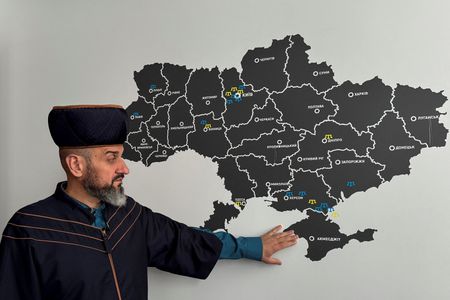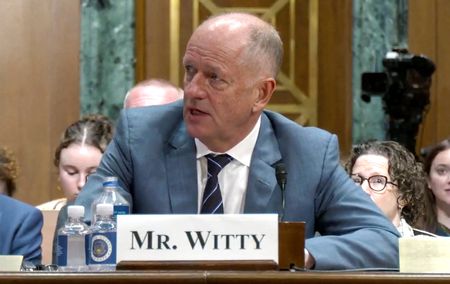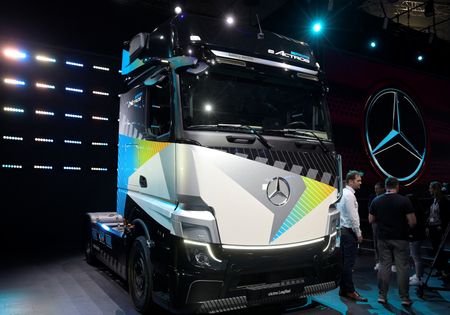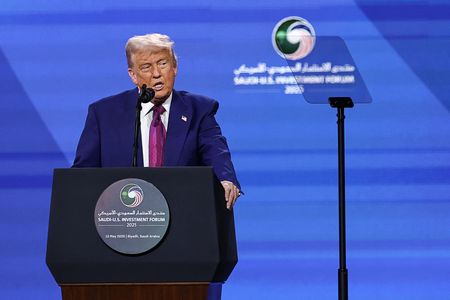BELGRADE (Reuters) – Serbia remains committed to its plan to join the European Union and wants to speed up its membership bid, President Aleksandar Vucic said on Tuesday after his recent trip to Moscow drew Western criticism.
Vucic travelled to Russia on May 8 and 9 for a parade marking the 80th anniversary of victory in World War Two. He also met Russia’s leader Vladimir Putin and Chinese President Xi Jinping there.
After meeting Antonio Costa, the President of the European Council, on Tuesday, Vucic said Belgrade wants to accelerate its European integration and open more negotiation chapters with the bloc.
“The atmosphere (in the EU), … is not exactly great, I’m convinced because of the trip to Moscow, but … I believe that Europe will have understanding for merit-based progress,” he said.
Russia is Serbia’s historical Orthodox Christian ally and a main supplier of natural gas, while Gazprom and Gazpromneft are also owners of Serbia’s NIS oil company.
Moscow also supports Belgrade in its opposition to the independence of Kosovo, its former southern province.
Vucic, who has been beset by months of anti-corruption protests led by students, pledged that the government would work to introduce reforms needed for joining the EU.
Serbia must root out corruption, reform its judiciary, media and election laws, mend ties with Kosovo and align its foreign policies with those of the bloc, including imposing sanctions against Russia over its invasion of Ukraine.
“A key element of our common foreign and security policy is the clear condemnation of Russia’s brutal invasion of Ukraine and support for Ukraine in achieving a just and lasting peace,” Costa said through an interpreter.
European Union officials have repeatedly urged presidents of nations aspiring to join the EU, including Vucic, to avoid Moscow’s World War Two victory commemorations.
Costa said he “was glad to hear” that EU membership remains Serbia’s first priority. “What needs to be done … it is freedom of the media, suppression of corruption and improvement of the electoral law.”
Out of the Western Balkans nations, Serbia, Montenegro, North Macedonia, Albania and Bosnia have secured a status of an EU membership candidate, while Kosovo lags behind.
(Reporting by Aleksandar Vasovic; Editing by Ros Russell)

